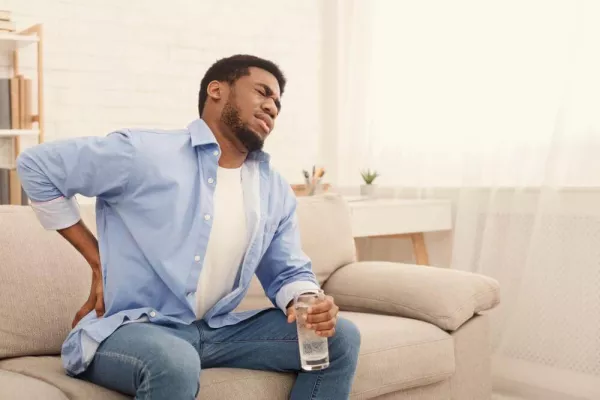Why Does My Hip Hurt All of a Sudden?

Hip pain is something of an umbrella term used to describe pain in or around the hip joint. When pain is in the joint itself, it’s most likely a joint issue. But if you feel it outside or around the hip joint, it may be due to problems with the muscles, ligaments, and tendons that surround and support the joint.
At Pinnacle Pain and Spine, our two interventional pain specialists, Dr. Matthew Crooks and Dr. Stuart Rammell, and the rest of our team understand how uncomfortable hip pain can be, which is why they offer a variety of treatment options, depending on the underlying cause of the pain.
If your hip starts to hurt suddenly, come in and get a diagnosis so we can treat your problem effectively.
If your hip suddenly starts hurting, the most common underlying causes are:
Arthritis
Arthritis comes from the words for “joint” and “inflammation,” and the most common forms of arthritis in the hip are osteoarthritis (wear-and-tear damage over time) and rheumatoid arthritis (an autoimmune condition), especially in older adults.
The pain may appear gradually or suddenly, and you feel it within the hip joint. You may also feel stiffness and have a reduced range of motion in the hip.
Treatment includes rest, ice, over-the-counter pain and anti-inflammatory medications, or steroid injections. If the cartilage in the joint is gone, you may be looking at a total hip replacement.
Hip fractures
As you age, you lose a large percentage of your reproductive hormones, which normally help keep your bones strong. Osteoporosis, a bone-thinning condition, makes the bones weak, brittle, and more likely to break during a fall. Hip fractures are very common in the older set and can be very painful.
You can manage osteoporosis with medication and by performing weight-bearing exercises.
Bursitis
Bursae are fluid-filled sacs located between tissues such as bone, muscles, and tendons. They ease the friction generated when the tissues rub together. The bursae can become inflamed, though, usually due to repetitive stress from activities that overwork the hip joint, causing pain.
The treatment options are much the same as for arthritis.
Tendinitis
Tendons are the thick bands of tissue that connect bones to muscles, and tendinitis is inflammation or irritation of those tendons, usually caused by repetitive stress. You feel the pain in your hip flexor (the group of muscles that moves your knee and leg toward your body) or groin.
Treatment is similar to arthritis and bursitis.
Hip impingement
Hip pain is showing up in the younger crowd among people who do high-intensity athletics, such as CrossFit or barre classes. The intensity can cause the hip bones to fuse, forming an abnormal shape and limiting movement.
This condition is known as hip impingement, or femoral acetabular impingement (FAI). Not only do you feel pain in your hip, but you’re also at increased risk of premature osteoarthritis.
Physical therapy is often the first line of treatment, but it’s possible you might need surgery at some point to move the hip bones and unlock them.
Labral tear
The hip is a ball-and-socket joint, and the labrum is the ring of cartilage surrounding the socket. It ensures the ball of the femur’s head stays in place. If it tears, it produces pain in the hip or groin and limits movement, creating the sensation the hip is locking, catching, or clicking.
The injury is common in people with anatomically shallow hips or with hip impingement.
The tear is usually treated with minimally invasive surgery that repairs the labrum and shaves down the misshapen bone. This procedure also corrects the hip’s alignment, relieving pain and protecting the joint.
Are you dealing with hip pain that’s suddenly (or not so suddenly) appeared? If so, Pinnacle Pain and Spine is the place you want to be for an accurate diagnosis and effective treatment.
Call us at any of our Arizona locations — Scottsdale, Chandler, or Fountain Hills — or send us a message online.